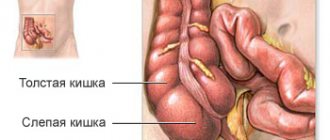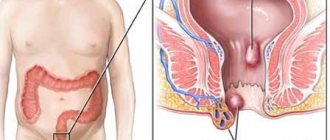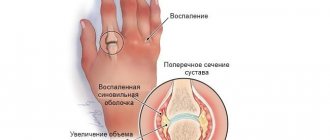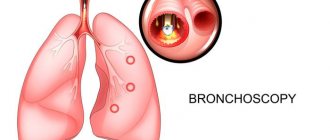Photo: healthage.ru A nervous breakdown is an acute condition caused by external stimuli and has signs of depression and neurosis. It is difficult for a person without medical education to determine the symptoms and recognize an approaching breakdown based on the signs, because... they are similar to other mental disorders.
Causes of a nervous breakdown
A breakdown is a defensive reaction to the fact that a person is overloaded and needs emergency help due to an external factor. A doctor should consult; the syndrome is increasingly being called acute.
The reasons are stress that regularly affects our organs or short-term shock.
Everyone falls into one group or another. People are often prone to:
- are constantly being thinned out for events that have happened to them or are about to happen in the future;
- increased desire to work;
- cannot improve relationships in the family or at work;
- with low self-esteem;
- cancer patients;
- those who are facing serious changes;
- young parents who just had children;
- experienced the loss of a loved one;
- failures in personal relationships or relationships with parents;
- lack of money for a normal existence;
- job loss;
- responsibility that cannot be handled;
- anxiety.
A breakdown begins due to negative events, but problems can begin after major events - a wedding, a move, a new job, the birth of a first child.
Men have varying degrees of stress resistance. It’s easy for one to survive life’s problems, while the other is overwhelmed by their appearance and begins to show aggression.
Is there a solution to these problems?
Mother and father must take care of their children. First, you need to work through your own problems and negative scenarios so that they are not passed on to your children. It is best to seek help from a psychologist.
Adults should bring their psycho-emotional state into harmony and pay close attention to the mood of children. It is necessary to build truly good relationships with your child from childhood. No need to wait for him to grow up. Understand that already at primary school age, children attach great importance to the words of the teacher.
The formation of the moral component occurs just before the age of 7. It is important to create all the conditions so that the child can fit harmoniously into society, without feeling like an inferior person. Remember that the main goal of education is to develop independence in children so that they can live without their parents.
Parents themselves must continuously develop, love themselves and this life, so that their children can be healthy and full of strength.
Starting from the age of 11, the main activity of a teenager is communication with peers. If a child does not satisfy his psychological needs in real life, he can go into virtual reality. Every adult must carefully look for all points of contact. It is important to realize that teenagers want to try a variety of hobbies.
You should not categorically prohibit a teenager from changing his external style. It’s better to talk to him frankly, tell him about the consequences. It is possible that a compromise can be reached. Use the I-statement method to communicate your feelings to your teen. He must realize that parents are living people who can be upset, happy and upset. If a teenager is in confrontation with his mother and father, he may encounter runaways and antisocial behavior.
From 12 to 18 years of age, puberty occurs, which can result in a hormonal explosion. We must not forget about the active development of personality, which may suffer from increased internal tension. Parents and teenagers must learn to hear each other. It is important to realize that children have not only rights, but also responsibilities. A teenager should feel a sense of belonging to family members and feel his own contribution to the common cause. The main thing is that the adult himself does not perceive the matured child as some kind of obstacle that “only gets in the way.”
A nervous breakdown cannot be called a separate disease. This is, first of all, to a certain extent a collective image that concerns an acute affective state. It appears as a result of depressive or neurotic tendencies due to fairly strong influence from external factors.
A feature of adolescence is mental instability. The child either overcomes a crisis period or faces a clinical form. There are many cases of schizophrenia at this age, which is caused by the unfavorable course of the transition period.
A nervous breakdown is quite capable of becoming part of the symptomatology, which concerns a psychotic episode, an acute reaction to a stressful situation that will be very difficult for a growing body to cope with. It is worth saying that there are no specific symptoms.
Preventive measures to eliminate the consequences of a nervous breakdown
It is important to mention the individual nature of this phenomenon. A child may be characterized by increased vulnerability, vulnerability to such environmental factors as: noise, too large crowds of people. These aspects may well be causes of stress for the child. It is important to create the most favorable circumstances for the harmonious development of children.
It is worth mentioning the need to overcome the consequences of the body’s stress response. You can use techniques such as:
- Special breathing exercises;
- Concentration on more pleasant objects and factors;
- Divert attention from the source of stress.
Psychologists can use cognitive behavioral therapy (see Cognitive therapy), the basics of art therapy and logotherapy.
The beneficial effects of digital technologies on human life should not be denied. They can help significantly, both in study and in work. Another question is that not all children are ready for increased emotional and informational stress, as a result of which all conditions for the child’s proper rest should be provided.
How does a nervous breakdown occur in older people?
People feel helpless as they approach old age. It is important to understand that older people are less mobile and experience more health problems. We can also mention pain and constant mental stress. Stressful situations can include not only retirement, but also the loss of loved ones and the lack of opportunity to lead a more eventful life.
Close people should pay increased attention, patience, and tact to elderly relatives. It is necessary to be aware of what to do if a person is on the verge of a nervous breakdown.
Remember that if the body shakes or trembles, it will be considered a sign of severe stress, which will lead to the onset of a seizure.
Signs and symptoms of a nervous breakdown
Symptoms and signs of a nervous breakdown, depending on the type of disorder, have common symptoms that are characteristic of the types of breakdowns. Among the consequences:
- lack of appetite, sleep, energy;
- constant irritability, anxiety, nervousness;
- the appearance of negative thoughts;
- fear of tomorrow;
- change in performance;
- constant desire to sleep;
- poor concentration;
- memory problems;
- negative thoughts;
- manifestation of apathy;
- headache;
- pressure;
- changes in mood, anxiety;
- panic attacks, fatigue;
- problems with the cardiovascular system;
- phobias.
A person’s behavior changes greatly, but the disease affects all organs. The disease is accompanied by symptoms: headache, shortness of breath, heart problems, poor appetite, blood pressure fluctuations, and mental changes. It is advisable to contact a psychologist.
Stages
A nervous breakdown does not occur suddenly; it goes through several stages before developing into a serious problem.
- At the first stage, the person disappears at work, his ability to work increases, he becomes optimistic, but at the same time, anxiety and restlessness in his soul only grow and lead to disturbances. Tremors, fever and insomnia are possible.
- Vigorous activity in the first phase leads to complete physical and emotional weakening. The individual believes that he cannot do anything, that all his efforts do not lead to success. He begins to get irritated for any reason, has difficulty sleeping, headaches, panic attacks, and rapid heartbeat.
- By the third stage, the person completely loses confidence in his abilities. Self-esteem drops critically, apathy and a depressed mood appear. Dizziness, pressure surges, attacks of nausea, and poor appetite are common. Menstruation after a nervous breakdown may not occur regularly, and libido decreases.
Diagnosis of nervous breakdowns
Development occurs at the moment when the patient is simply no longer able to bear the load. The psyche simply becomes uncomfortable working in the same conditions; it asks for possible methods of help. And a person tolerates everything that happens to him, although the state has already reached its peak. Emotions are overwhelming, anything can be expected at any moment. Explosions occur, although everything could be fine for many years. But a critical moment has begun, everything needs to be corrected so that your organs no longer experience this feeling.
It’s all because of the reason that was the beginning of the occurrence. The tank was filling very slowly, but surely, and at one point it simply exploded from overfilling and would not be able to work.
There are two models of behavior in a difficult situation:
- Explode for any reason. At the same time, the patient splashes out his emotions and shows indignation. Strong scandals and conflict situations are characteristic of this type and the reasons for divorce.
- Accumulate all the grievances in yourself, like in a big vessel. He endures all insults until the last moment. Apathy towards everything, a depressive state, and a reluctance to communicate with anyone may begin. A mental problem begins to appear, if of course it was not there before.
But how can we avoid the danger of overfilling that same vessel and cope with the consequences? You can avoid this by becoming aware of your feelings, emotions, experiencing and accepting them.
The difference between nervousness and irritability
Irritability is a negative emotional state that occurs in response to inconsistency with expectations of events, situations or people's behavior. The degree of expression depends on the nature of the individual, the learned norms and rules of behavior in the process of education.
Are you ready to stop thinking about your problem and finally move on to real actions that will help you get rid of your problems once and for all? Then perhaps you will be interested in this article .
A person who is able to manage emotions restrains irritation and shows restraint and tolerance towards others.
Sometimes irritability becomes a personality trait, a character trait. In this case, a person loses self-control, breaks down - tension in communication, conflicts arise, and the implementation of any activity is destabilized. An irritated person expresses dissatisfaction and hostility towards others in words and actions, displays causeless anger, short temper, resentment, and aggressive actions.
Men are more likely to show irritability. Women of any age are prone to nervousness.
In a hospital or at home?
It is easier to prevent a breakdown than to treat it. During a breakdown, not everyone knows how to calm a person down. Just a few years ago, to calm the patient, they poured a bucket of cold water on him, if, of course, there was cold water nearby. If this does not help, you need to contact an ambulance.
Screaming will not help; a person is not able to control his actions. A raised voice can only make things worse, which should not be allowed.
Everyone decides for themselves where it is better to treat the disease - in a hospital or at home. If, for example, the breakdown was caused by the situation in the family, then it would be logical to send the patient to the hospital. The psyche may simply not cope if this happens again.
In other situations, having relatives nearby can have a positive effect on the patient’s well-being. Any drug is prescribed after a comprehensive examination. The patient must be under the supervision of a doctor; many drugs can be addictive. After treatment, it takes another month to recover.
But vice versa, it is better to treat a nervous breakdown at home in women and men. We need to understand what led to this state. If, for example, constant tension arises at work, you need to take a vacation or quit altogether, there is nothing more valuable than health. If the cause is overwork, you need to build a more gentle schedule for yourself, which will include 8 hours of sleep, a walk in the fresh air during the day, and proper nutrition.
When treating at home, you need to consult with a therapist to draw up an action plan. Treatment within the walls of the home is aimed at relaxation and distracting the patient from the problem. The method is safe for life and health.
Nervous breakdown in women
The weaker sex is most susceptible to mental difficulties, and it is quite easy to understand that a woman is on the verge of a nervous breakdown. The girl is more whiny and touchy, hysterics occur, and anxiety and anxiety grow. Self-esteem drops, sudden mood swings occur, even minor problems become difficult to resolve.
Physical symptoms in women that indicate abnormalities include constant headaches, dizziness, lack of sleep and appetite, decreased libido and excessive feelings of guilt, which as a consequence turns into a form of paranoia.
Nervous breakdown in pregnant women
During pregnancy, a woman becomes more vulnerable and vulnerable, so mental illness while on maternity leave is common.
- The deviation is accompanied by frequent headaches, dizziness, feelings of anxiety and restlessness, nightmares or insomnia. A nervous breakdown that can happen to a woman during pregnancy has serious consequences not only for her, but also for her unborn baby. This will negatively affect his health.
- In addition, the expectant mother should not worry too much, because... severe shock can cause uterine tone and cause miscarriage.
- Stressful situations can cause disturbances in diet and sleep, migraines and increased toxicosis. Exhaustion can also cause the newborn to be hyperactive and hysterical after birth.
Consequences
The emotional state has a direct connection with the physical state. If a nervous breakdown has been detected, symptoms begin to appear: problems with the heart, problems with the digestive system, dizziness. A breakdown may begin in a patient who has attempted to commit suicide.
If the problem is not diagnosed, it begins to accumulate like a snow globe. The patient begins to have communication problems, becomes more hot-tempered, irritable, and his psychological state worsens.
A breakdown leads to drug addiction or taking excessive amounts of alcohol, and promiscuous sexual relations. The search begins for a method of discharge, getting rid of all the negativity that has accumulated in the form of an internal factor. It is necessary to get help from a psychotherapist in time.
general description
As a result of a nervous breakdown, there is a feeling of lack of control over one’s own feelings and actions, in which, accordingly, the person completely succumbs to the states of stress, worry or anxiety that dominate him during this period.
A nervous breakdown, despite the general picture of its manifestation in many cases, is, however, a positive reaction on the part of the body, and in particular a protective reaction. Other similar reactions include, for example, tears, as well as acquired immunity, which occurs against the background of mental stress in combination with intense and prolonged mental stress.
When a person reaches a critical state for the psyche, a nervous breakdown acts as a kind of lever, due to the activation of which the accumulated nervous tension is released. Any event can be identified as the cause of a nervous breakdown, be it large-scale and intense in its impact or, conversely, insignificant, but “long-term undermining.”
It is extremely important to know the symptoms of a nervous breakdown in order to take the necessary measures in a timely manner, because we are actually talking about an extremely serious disorder in which the development of events can occur in a variety of ways, from subsequent admission to the cardiology department and ending with a neuropsychiatric dispensary.
Specifics of treatment
Nervous breakdowns do not appear out of nowhere. This is a long-term disease that has not been treated for years, or prolonged stress that the patient has experienced. To get rid of an ordinary nervous breakdown, you need to reconsider your life, get rid of the cause - treat the underlying disease, limit your communication with those who bring you to such a state.
This lengthy process can take a month or even more. There are medications that will help the patient during periods of treatment. Those who are treated at home without a doctor’s prescription cannot even imagine the harm they are causing to their body.
The disorder appears for various reasons; the treatment of a nervous breakdown, especially in women, must be approached in a comprehensive manner.
Nervous breakdown in men
The stronger half of humanity is less likely to experience mental illness, because... have a more stable psyche and a high level of stress resistance.
If a man is on the verge of a nervous breakdown, he will not cry or refuse to work, he will only be irritable and aggressive. Therefore, it is important to keep an eye on your loved ones and friends. It is noted that refusal to eat or overeating, insomnia, outbursts of anger and aggression, giving up a favorite hobby and talking about death are things that should be paid close attention to.
Non-drug ways to deal with a nervous breakdown
- Sports activities. Sports exercises will help you calm down and recharge yourself with positivity. This method has not harmed more than one patient. Sport improves heart function, brain function, and sleep.
- Relaxation programs: meditation, yoga, body massage. Relieve tension, relax the body, get rid of negative thoughts. Do it at least 2 times a week.
- Maintaining a healthy lifestyle. No matter how strange it may sound, it helps. Alcohol, drugs, coffee - all this affects the nervous system.
- Proper nutrition, essential vitamins.
Prevention
Under stress, it is important to demonstrate external equanimity and restraint, working through emotions and psychological stress in a calmer environment. It's even better to be prepared for stress in advance.
Preventing nervousness:
- Strengthening health through proper nutrition, rest and exercise.
- Changing the situation means getting rid of the cause of concern.
- Changing the attitude towards the situation - using self-hypnosis of a feeling of indifference towards the causes of anxiety. At the same time, you cannot refuse to solve the problem.
- Be able to relax - relieve tension caused by stress.
- Do not try to re-educate others “in your own way.”
- Don’t be left alone with troubles - seek support from friends and family.
- Do not indulge in pipe dreams, remain realistic.
- Be able to look at yourself critically from the outside, but not engage in self-deprecation.
- Stop holding anxious thoughts in your mind.
Control over intonation, gestures and facial expressions will help you concentrate and feel confident.
With the help of drugs and medicines
- Medicine offers drugs with sedative effects. Dizziness and heart problems can be treated with medication. These are not pills that will cure your relapse, but they will make you feel much better. Medicinal use is one of the most effective.
- Preparations based on plant extracts have a calming component.
- Vitamins. When you are stressed, you especially need to enrich yourself with vitamins such as group B, vitamin E, magnesium, calcium, so that depletion does not occur.
- Biologically active additives. They contain extracts of soothing plants.
- Antidepressants. Strong drugs that should never be used without a prescription. They have many side effects, so they are prescribed in emergency situations.
Nervousness as a sign of other diseases
Under the influence of the disease, the normal functioning of the brain is disrupted, making it difficult to solve everyday problems.
Diseases associated with nervousness:
- cardiovascular;
- vegetative dystonia;
- diseases of the nervous system;
- endocrine.
For proper functioning of the nervous system, magnesium is required, which is found in nuts, meat, dark chocolate, and cereals. With a deficiency of this microelement, nerve cells become easily excitable.
Restoration of the nervous system after a long course of treatment
In order to consolidate the therapeutic effect, you need to completely reconsider your lifestyle. Particular attention should be paid to nutrition, making sure that the diet contains plenty of fruits, fiber and carbohydrates. In addition, take vitamins regularly after consulting your doctor. Pay attention to reducing the amount of coffee and tea you drink, replacing it with juice. Eliminate bad habits from your life. If a person plays sports every day, then his health will be much better. If possible, go on vacation.
What to do if you have causeless anxiety and worry
It's hard to live in constant stress. If you are experiencing causeless anxiety and fear, the following list will tell you what to do:
- Talk to someone you trust. This could be a relative, a close friend, a psychotherapist or a helpline employee. People are social creatures, so communication is a good way to relieve internal stress.
- Find a way to calm down quickly. There is not always someone nearby with whom you can share. Therefore, it is important to find a suitable method that will help you relax: breathing techniques, soothing music, aromatherapy, self-massage and more. If you cannot independently choose a technique that quickly helps with anxiety for no reason, a specialist will tell you what to do.
- Add physical activity to your life. It is a natural and effective remedy for anxiety. Moderate exercise relieves tension, reduces stress hormones and strengthens the nervous system. Get at least 30 minutes of exercise every day.
- Normalization of lifestyle. Get enough sleep, eat well, give up bad habits. This stabilizes physical performance and neurotransmitter levels, which helps maintain emotional balance.
- Start keeping a journal. Taking notes can help you identify patterns of anxiety flare-ups, understand the causes, and spot early signs of them. Also, thanks to this, you will begin to focus more on positive events that you may not have noticed before.
When worried for no reason, everyone who regularly encounters this wants to know what to do. There is no universal method, but the 5 steps listed above are recommended for every person with increased anxiety. This may be enough to alleviate symptoms. But if self-help techniques do not give the desired effect, then if you regularly experience anxiety for no reason, you need to find out what to do from a specialist.
How to protect yourself from breakdown
The most important thing is to correctly identify the disease and begin treatment for the breakdown from any side. Unfortunately, many people accept the appearance of irritability, insomnia, bad mood and a number of other factors as a phenomenon with which absolutely everyone lives. Therefore, you should not contact a neurologist. But that's not true! It is important for your loved ones to be there at this moment when it is difficult to survive everything! Experts require that treatment be started as early as possible.
Stress is not a normal condition and must be treated! Don’t be afraid to disturb the doctor with your trivial questions - sleep disorders, mental disorders, tearfulness, forgetfulness, memory impairment, dizziness, and more. These are all points that can be resolved at the formation stage. But if you do not pay attention to them, then you can wait for clinical depression, which can only be gotten rid of with the strongest drugs, the use of certain tranquilizers.
Nervous breakdown in the elderly
The closer to old age, the more people feel helpless. The elderly are less mobile, become decrepit, constantly feel pain and acquire chronic diseases, therefore they are also susceptible to mental stress. In addition, for adults, the death of loved ones, retirement and mistreatment can cause primary symptoms and lead to serious consequences, for example, neuroses and depression.
It is important to know what to do in a situation where an elderly person is on the verge of a nervous breakdown.
Interesting! If the whole body trembles or shakes, then this is also a sign of severe stress and can lead to the onset of a seizure.
Vegetovascular dystonia
Vegetovascular dystonia (VSD) is a fairly common diagnosis. This is a disorder of the nervous system that can be diagnosed in both adults and children. autonomic nervous system needs to function properly because it regulates:
- how often does our heart beat
- what is our body temperature
- what kind of metabolism
- How will the pressure change?
Therefore, VSD manifests itself with symptoms similar to those of psychological, neurological and cardiac diseases. The examination must include a variety of methods, and the diagnosis requires review by an experienced, highly qualified specialist.
Symptoms of vegetative-vascular dystotonia:
- breathing disorders:
- increased breathing or
- labored breathing
- worsening of the above symptoms during physical activity
- dysfunction of the heart and blood vessels
- periodic increase in blood pressure or
- periodic hypotension
- bradycardia
- tachycardia
- pain in the area of the heart
- disorders of the digestive tract
- lack of appetite
- nausea
- heartburn
- belching
- accumulation of gases in the intestines
- temperature violations
- cold hands and feet
- increased temperature caused by even minor stress
- sweating in large quantities or
- chills
- disturbances in the emotional sphere
- frequent crying or on the verge of crying
- increased irritability
- worries
- phobias of various kinds
- skin symptoms
- skin turns pale
- under emotional stress, the skin becomes covered with red/scarlet spots











